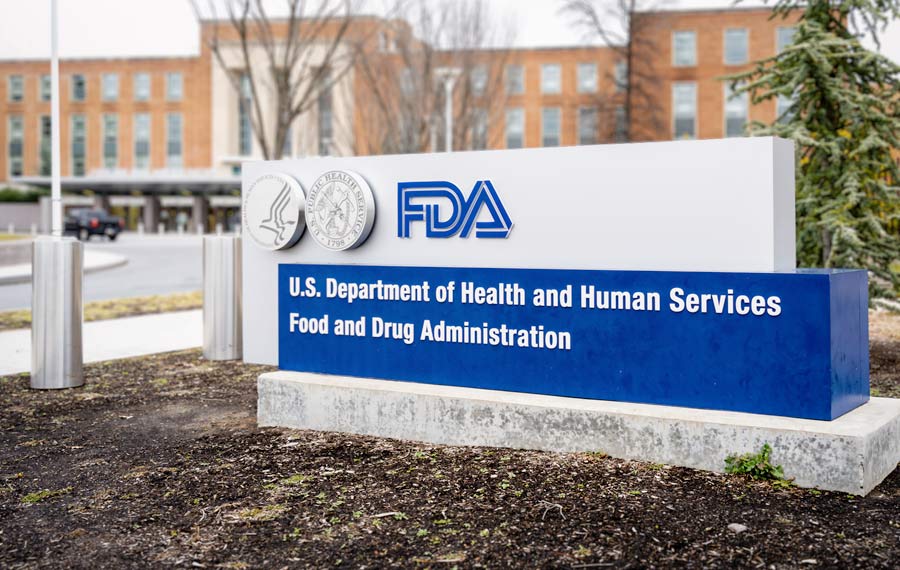The Illegal Crusade Against Ivermectin
The FDA overstepped its authority, argues Dr. Ben Carson and C. Boyden Gray.

For the first two years of the COVID-19 pandemic, there were few — if any — recommendations from federal public health authorities for treatments prior to hospitalization. The issue of early treatment is critical in any discipline of medicine, and no less so here. But early treatment of COVID-19 was dismissed by the medical establishment.
If there be any doubt about the vital importance of early treatment, consider the directions from Pfizer about Paxlovid. The company insists, and the FDA now parrots, the drug should be administered as soon as possible after a COVID-19 diagnosis, and at least within 5 days of symptom onset.
While existing clinical examination has demonstrated sufficient efficacy for an emergency use authorization from the FDA, the fact remains that Paxlovid has yet to receive full approval from the agency. Recently reports of a “rebound“ phenomenon associated with Paxlovid have surfaced. Mild symptoms can return and infectivity can be associated with it. This does not appear to be a serious problem compared to the tremendous benefit derived from the drug.
What is Ivermectin?
There are, however, fully approved therapies that have been shown to be effective early treatments for COVID-19. While several come to mind, one stands out — ivermectin.
Ivermectin was discovered in the 1970s by William C. Campbell and Satoshi Ōmura, and subsequently developed for use in humans. They won the Nobel Prize in Physiology or Medicine in 2015 for their work. Recent decades have seen more than 4.4 billion doses of ivermectin distributed worldwide in mass drug campaigns alone. The medication has saved hundreds of millions from river blindness and elephantiasis. The World Health Organization (WHO) lists ivermectin as an “essential medicine,” and sculptures to commemorate the feats of this “wonder drug” have been erected in locations around the world, from Atlanta to Amsterdam, from the World Bank to the WHO itself.
Ivermectin is Safe
Importantly, ivermectin is known to be safe. It’s so safe that the drug is sold over-the-counter or distributed for free in many countries. For perspective, the FDA Adverse Events Reporting System shows only 70 deaths associated with ivermectin since 1996, compared to 3882 deaths associated with acetaminophen, the active ingredient in Tylenol, during the same period.
The FDA has authority to approve when drugs like ivermectin can first enter the market in the United States, and what labeling they will use. Doctors can then prescribe those drugs however they think necessary to treat patients, including for “off-label” uses that differ from what the FDA approved.
The FDA has openly acknowledged that off-label use of approved drugs is not only legal, but a necessary and important part of the practice of medicine. An estimated 21% of all prescriptions are for off-label use, and that number jumps to 36.2% in adult intensive care units. Ivermectin is already used off-label for a growing list of ailments and has shown promise in the treatment of many more, including a host of viral infections.
FDA Oversteps Its Authority … Again.
Because ivermectin is fully approved by the FDA for human use — not simply granted emergency use authorization — the agency has no grounds for warning against or trying to prevent its use to treat COVID-19. But the FDA has done so repeatedly, mounting a relentless campaign to deride a pivotal human drug as a horse de-wormer and pressure health professionals and the public to eschew its use.
This violates both fundamental ethics and the law. Congress was clear in the Food, Drug, and Cosmetic Act that the FDA could not interfere in the practice of medicine, which includes prescribing drugs off-label. Yet the agency has forged ahead undeterred, discouraging — and, in the eyes of the public, banning — use of ivermectin. In a display of insatiable arrogance, the FDA has refused to be satisfied with its authority over market entry and labeling, and instead tried to commandeer the role of doctors in treating their patients as well.
Please Support The Stream: Equipping Christians to Think Clearly About the Political, Economic, and Moral Issues of Our Day.
Unfortunately, this is nothing new for the FDA. After reports about the effectiveness of hydroxychloroquine as an early treatment for COVID-19, the FDA engaged in a concerted effort to discredit the drug and interfere with its use. The FDA first attempted to limit treating COVID-19 patients with hydroxychloroquine to clinical trials or hospital settings — in other words, to prevent using the drug as an early treatment — confining it to circumstances where it would be less effective in the late stages of the disease. The agency then repeatedly headlined potential side effects, which are quite rare, intentionally obfuscating that hydroxychloroquine remains fully approved by the FDA and has been used safely outside hospitals for over half a century to treat numerous medical conditions, like malaria, arthritis, and lupus.
FDA, Stop Telling Doctors How to Treat Their Patients
There is ample evidence that ivermectin is an effective treatment for COVID-19, especially in the early stages of the disease. Doctors across the United States, and countries around the world, attest to its success. But that’s not the issue here. The issue is FDA bureaucrats donning medical gowns and telling doctors what they should or should not prescribe. And it must stop.
Dr. Carson, U.S. Secretary of Housing and Urban Development from 2017 to 2021, is a neurosurgeon and founder of the American Cornerstone Institute.
C. Boyden Gray has served as White House Counsel, U.S. Ambassador to the European Union, and U.S. Special Envoy to Europe for Eurasian Energy.







